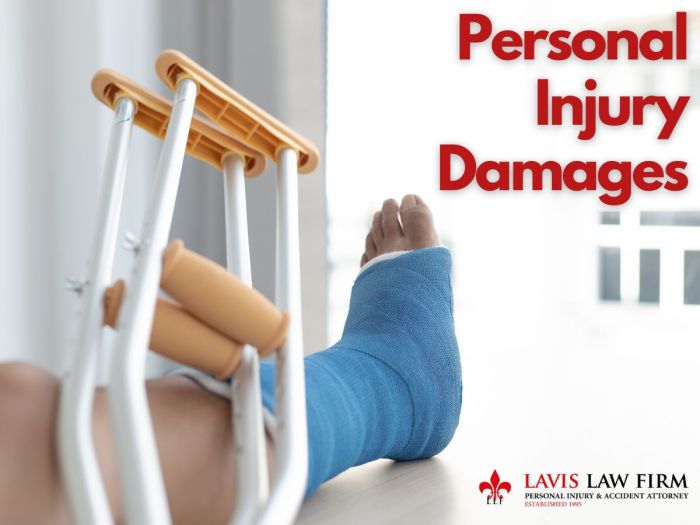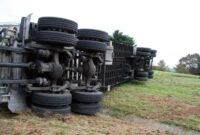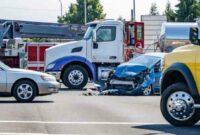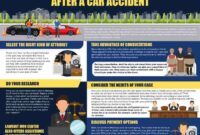Louisiana Personal Injury law safeguards individuals who have suffered harm due to the negligence or wrongdoing of others. This area of law encompasses a wide range of situations, from car accidents to medical malpractice, ensuring that victims have access to justice and compensation for their losses.
The state of Louisiana follows a civil law system, which means that the legal principles are derived from a codified set of laws rather than common law precedents. This unique legal framework influences how personal injury cases are handled, emphasizing the concept of fault and the potential for significant damages.
Louisiana Personal Injury Law Overview
Louisiana personal injury law is a complex area of law that governs how people who have been injured due to the negligence or wrongful conduct of another can seek compensation for their injuries. It’s important to understand the key principles of Louisiana personal injury law to know your rights and options.
Key Principles of Louisiana Personal Injury Law
The foundation of Louisiana personal injury law is the concept of negligence. Negligence occurs when someone fails to exercise the reasonable care that a prudent person would use under similar circumstances, resulting in harm to another person. To establish negligence in a personal injury case, a plaintiff must prove the following elements:
- Duty of Care:The defendant owed a legal duty to the plaintiff to act with reasonable care.
- Breach of Duty:The defendant breached that duty of care by failing to act with reasonable care.
- Causation:The defendant’s breach of duty was the direct cause of the plaintiff’s injuries.
- Damages:The plaintiff suffered actual damages as a result of the injuries.
Damages Available in a Personal Injury Case
In Louisiana, a plaintiff can seek various types of damages in a personal injury case, including:
- Economic Damages:These damages compensate for quantifiable financial losses, such as medical expenses, lost wages, and property damage.
- Non-Economic Damages:These damages compensate for intangible losses, such as pain and suffering, emotional distress, loss of consortium, and disfigurement.
- Punitive Damages:These damages are awarded in rare cases where the defendant’s conduct was particularly egregious or reckless. They are intended to punish the defendant and deter similar behavior in the future.
Statute of Limitations for Personal Injury Claims in Louisiana
The statute of limitations for personal injury claims in Louisiana is a specific time frame within which a plaintiff must file a lawsuit. This timeframe is generally one year from the date of the injury or the date the injury was discovered.
For example, if a person is injured in a car accident on January 1, 2023, they have until January 1, 2024, to file a lawsuit. However, if the injury was not discovered until June 1, 2023, they would have until June 1, 2024, to file a lawsuit.
It is crucial to consult with a Louisiana personal injury attorney to ensure that you file your claim within the applicable statute of limitations.
Common Types of Personal Injury Cases in Louisiana
Louisiana is known for its high volume of personal injury cases. The state’s unique legal system and high traffic volume contribute to this trend. This section will discuss some of the most common types of personal injury cases in Louisiana, including their legal considerations and potential outcomes.
Car Accidents
Car accidents are a leading cause of personal injury in Louisiana. Louisiana is a “fault” state for car accidents, meaning the driver who caused the accident is liable for damages. A driver who causes an accident may be liable for:
- Medical expenses
- Lost wages
- Pain and suffering
- Property damage
In some cases, the driver may also be liable for punitive damages if their actions were particularly reckless or negligent. Punitive damages are intended to punish the defendant and deter future wrongdoing.
For example, if a driver is texting while driving and causes an accident, they may be found liable for punitive damages in addition to compensatory damages.
Slip and Falls
Slip and falls are another common type of personal injury case in Louisiana. These cases often occur in businesses, homes, and public places. To prove a slip and fall case, the injured party must demonstrate that:
- The property owner had a duty to keep the premises safe.
- The property owner breached that duty.
- The breach caused the injured party’s injuries.
For example, if a store owner fails to clean up a spill and a customer slips and falls, the store owner may be liable for the customer’s injuries.
Medical Malpractice
Medical malpractice cases involve injuries caused by the negligence of a healthcare professional. These cases can be complex and require specialized legal expertise. To prove a medical malpractice case, the injured party must demonstrate that:
- The healthcare professional had a duty to provide competent care.
- The healthcare professional breached that duty.
- The breach caused the injured party’s injuries.
- The injuries resulted in damages.
For example, if a doctor misdiagnoses a patient’s condition and the patient suffers further complications as a result, the doctor may be liable for medical malpractice.
Product Liability
Product liability cases involve injuries caused by defective products. These cases can arise from a variety of situations, including:
- Manufacturing defects
- Design defects
- Failure to warn
To prove a product liability case, the injured party must demonstrate that:
- The product was defective.
- The defect caused the injured party’s injuries.
For example, if a manufacturer fails to warn consumers about the dangers of using a product, and a consumer is injured as a result, the manufacturer may be liable for product liability.
The Role of Fault in Louisiana Personal Injury Cases
In Louisiana, fault is a critical element in determining liability for personal injury cases. It is the foundation upon which compensation is awarded, and understanding its intricacies is crucial for both plaintiffs and defendants.
Fault in Louisiana Personal Injury Law
Fault in Louisiana personal injury law refers to the responsibility or blame assigned to an individual or entity for causing an injury. This concept is based on the state’s civil code, which adheres to a “fault-based” system. In essence, this means that a person who causes harm to another is generally held responsible for the resulting damages.
This principle ensures that individuals who have suffered injuries due to the negligence or misconduct of others can seek compensation.
Types of Fault
There are several types of fault recognized in Louisiana personal injury law, each with its own implications for determining liability:
Comparative Negligence
Comparative negligence is a crucial concept in Louisiana personal injury law. It acknowledges that both the plaintiff and defendant may have contributed to the injury. The degree of fault assigned to each party directly affects the amount of damages they can recover or pay.
- Modified Comparative Negligence:Louisiana follows a modified comparative negligence system. This means that a plaintiff can only recover damages if their fault is less than 50%. If the plaintiff is found to be 50% or more at fault, they are barred from recovering any compensation.
- Example:If a pedestrian crosses the street without looking and is struck by a car, the court may determine that the pedestrian was 40% at fault and the driver 60% at fault. In this scenario, the pedestrian would be able to recover 60% of their damages from the driver.
Strict Liability
Strict liability is a legal doctrine that holds a defendant liable for injuries caused by their actions, even if they did not act negligently. This doctrine applies to certain specific situations, such as:
- Defective Products:If a product is defective and causes an injury, the manufacturer or seller can be held strictly liable, regardless of whether they knew about the defect.
- Dangerous Activities:Activities that are inherently dangerous, such as using explosives or keeping wild animals, can trigger strict liability. This means that the person engaging in these activities is responsible for any harm caused, even if they took reasonable precautions.
Determining Fault
Fault is typically determined through a process of evidence gathering and legal argument. The following factors are often considered:
- Witnesses:Testimony from eyewitnesses can provide valuable information about the events leading up to the injury.
- Physical Evidence:This includes photographs, videos, and other physical objects that can help reconstruct the incident.
- Expert Testimony:Experts in various fields, such as accident reconstruction or medical care, can provide specialized opinions about the cause of the injury.
- Prior Conduct:Past behavior of the parties involved can be relevant in determining fault. For example, if a driver has a history of speeding violations, it may be more likely that they were speeding at the time of the accident.
“The burden of proof in a personal injury case is on the plaintiff to demonstrate that the defendant was at fault and that the defendant’s fault caused the injury.”
Seeking Compensation for Personal Injury in Louisiana
After an accident, seeking compensation for your injuries and losses is a crucial step. This section will guide you through the process of filing a claim and understanding your rights in Louisiana.
Filing a Personal Injury Claim
Filing a personal injury claim involves several steps, starting with notifying the responsible party about the accident and your injuries. It is important to seek medical attention immediately after an accident, as medical records will be crucial evidence in your claim.
You should also document the accident, including taking photographs, gathering witness contact information, and reporting the accident to the authorities.
- Notify the Responsible Party:Inform the party responsible for the accident about the incident and your injuries. This could be an individual, a business, or an insurance company.
- Seek Medical Attention:Promptly seek medical treatment to document your injuries and ensure proper care.
- Document the Accident:Take photos of the accident scene, gather witness contact information, and file a police report if applicable.
- Contact an Attorney:Consider consulting with a personal injury attorney who can advise you on your rights and options.
The Role of Insurance Companies in the Claims Process
Insurance companies play a significant role in the claims process. They are responsible for evaluating claims, negotiating settlements, and potentially paying out benefits. However, it is important to understand that insurance companies have a financial interest in minimizing payouts.
They may try to undervalue your claim or deny it altogether.
- Claim Evaluation:Insurance companies will investigate the accident and your injuries to determine the validity of your claim.
- Negotiation:Insurance companies may attempt to negotiate a settlement with you, which may be less than the full amount you are entitled to.
- Potential Denial:Insurance companies may deny your claim if they find it invalid or if they believe it is not their responsibility.
Resolving a Personal Injury Case
Resolving a personal injury case can involve negotiation or litigation. Negotiation is the preferred method, as it can be less time-consuming and costly. However, if negotiations fail, litigation may be necessary.
- Settlement Negotiations:You and your attorney will negotiate with the insurance company to reach a fair settlement for your injuries and losses.
- Litigation:If negotiations fail, you may have to file a lawsuit to pursue your claim in court.
Types of Compensation in a Personal Injury Case
Compensation in a personal injury case can include various types of damages, depending on the specific circumstances of the case.
| Type of Compensation | Description | Example |
|---|---|---|
| Medical Expenses | Costs associated with treating your injuries, including doctor’s visits, hospital stays, medication, and physical therapy. | $5,000 in medical bills for a broken leg. |
| Lost Wages | Compensation for income lost due to your injuries, including time off work and reduced earning capacity. | $2,000 in lost wages for two weeks of missed work. |
| Pain and Suffering | Compensation for the physical and emotional distress caused by your injuries. | $10,000 for pain and suffering associated with a severe back injury. |
| Punitive Damages | Punishment for the defendant’s reckless or intentional conduct. | $50,000 in punitive damages for a drunk driver who caused a serious accident. |
Legal Resources for Personal Injury Victims in Louisiana
Navigating the complexities of personal injury law can be daunting, especially when you’re dealing with the aftermath of an accident. Thankfully, various resources are available to provide support and guidance to personal injury victims in Louisiana. These resources can help you understand your legal rights, navigate the legal system, and seek the compensation you deserve.
Legal Aid Organizations
Legal aid organizations offer free or low-cost legal assistance to individuals who cannot afford to hire an attorney. These organizations provide a range of services, including legal advice, representation in court, and referrals to other resources.
- Louisiana Legal Services Corporation (LLSC):LLSC is a non-profit organization that provides legal assistance to low-income residents of Louisiana. They offer services in various legal areas, including personal injury, family law, and consumer law.
- Contact Information:
- Phone: (800) 582-5297
- Website: www.llsconline.org
- Contact Information:
- Southeastern Louisiana Legal Services (SLLS):SLLS provides legal services to low-income residents of southeastern Louisiana. They offer assistance with personal injury cases, as well as other legal matters.
- Contact Information:
- Phone: (504) 522-1976
- Website: www.slls.org
- Contact Information:
- Legal Aid of Louisiana (LAL):LAL is a non-profit organization that provides legal assistance to low-income residents of Louisiana. They offer a variety of services, including legal advice, representation in court, and referrals to other resources.
- Contact Information:
- Phone: (800) 582-5297
- Website: www.laaid.org
- Contact Information:
Government Agencies
Government agencies can provide information and resources to personal injury victims. These agencies may offer assistance with medical bills, lost wages, and other expenses related to your injury.
- Louisiana Department of Health (LDH):The LDH offers a variety of resources to help individuals injured in accidents. They can provide information about medical providers, rehabilitation services, and other resources.
- Contact Information:
- Phone: (800) 256-2339
- Website: www.ldh.la.gov
- Contact Information:
- Louisiana Workforce Commission (LWC):The LWC provides assistance to individuals who have lost their jobs due to a personal injury. They can help you file for unemployment benefits and find new employment.
- Contact Information:
- Phone: (888) 252-6626
- Website: www.laworks.net
- Contact Information:
- Louisiana Office of the Attorney General (OAG):The OAG investigates consumer complaints and enforces consumer protection laws. They can help you resolve disputes with businesses or individuals who have harmed you.
- Contact Information:
- Phone: (800) 352-4242
- Website: www.ag.state.la.us
- Contact Information:
Consumer Protection Groups
Consumer protection groups advocate for the rights of consumers and can provide information and support to victims of personal injury.
- Louisiana Consumer League:The Louisiana Consumer League is a non-profit organization that advocates for the rights of consumers. They can provide information about consumer protection laws and help you file complaints against businesses.
- Contact Information:
- Phone: (504) 524-3072
- Website: www.laconsumerleague.org
- Contact Information:
- Better Business Bureau (BBB):The BBB is a non-profit organization that accredits businesses and resolves consumer complaints. They can provide information about businesses and help you file complaints.
- Contact Information:
- Phone: (504) 529-1400
- Website: www.bbb.org
- Contact Information:
Choosing a Qualified Personal Injury Attorney
It is essential to choose a qualified and experienced personal injury attorney to represent your case.
- Experience:Look for an attorney who has experience handling personal injury cases similar to yours.
- Reputation:Check the attorney’s reputation by reading online reviews and contacting the bar association.
- Communication:Choose an attorney who communicates clearly and effectively. They should be responsive to your questions and concerns.
- Fees:Discuss the attorney’s fees upfront and ensure you understand the payment terms.
- Trust:Choose an attorney you feel comfortable working with and who you trust to represent your interests.
Common Mistakes to Avoid in Personal Injury Cases
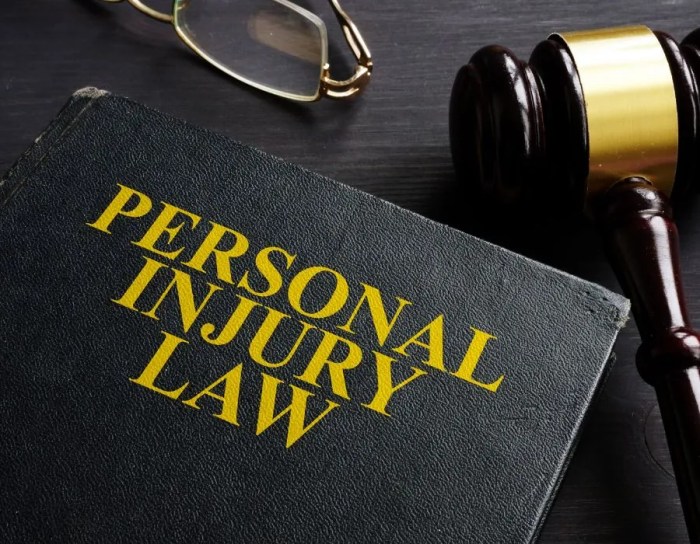
Navigating a personal injury case in Louisiana can be complex, and making mistakes can significantly impact your chances of a successful outcome. Understanding common pitfalls and taking steps to avoid them is crucial to protecting your rights and maximizing your potential compensation.
Failing to Seek Medical Attention Promptly
Seeking medical attention immediately after an accident is crucial for several reasons. First, it ensures you receive necessary treatment for your injuries. Second, it establishes a clear record of your injuries and their severity, which is essential for proving your claim.
Delaying medical care can weaken your case, as it might appear that your injuries are less serious or that you are exaggerating their severity.
It is advisable to consult a doctor as soon as possible after an accident, even if you feel fine. Some injuries may not be immediately apparent and can worsen over time.
Not Reporting the Accident
Reporting the accident to the appropriate authorities is a critical step in any personal injury case. In Louisiana, you must report accidents involving motor vehicles to the police, regardless of the severity. Failure to report an accident can result in penalties and may complicate your ability to file a claim.
Additionally, reporting the accident provides official documentation of the incident, which can be valuable evidence in your case.
Reporting an accident also allows the authorities to investigate the cause of the accident and determine liability.
Speaking to the Insurance Company Without Legal Counsel
Insurance companies are businesses with the primary goal of minimizing their payouts. They may use tactics to try and get you to make statements that could harm your case. It is essential to avoid speaking to the insurance company without first consulting with a personal injury lawyer.
Your attorney can advise you on how to handle communication with the insurance company and ensure that your rights are protected.
Do not sign any documents or agree to any settlements without first consulting with a lawyer.
Not Gathering Evidence
Evidence is crucial in personal injury cases. It helps establish the facts of the accident, prove negligence, and support your claim for damages. Failing to gather evidence can weaken your case significantly.
- Take photos and videos of the accident scene, including any injuries, property damage, and traffic signs.
- Gather contact information from witnesses, including their names, phone numbers, and addresses.
- Keep all medical records, bills, and receipts related to your injuries.
- Document all lost wages and other expenses resulting from the accident.
Thorough documentation of evidence is crucial for establishing a strong case.
Missing Deadlines
Personal injury cases have strict deadlines for filing lawsuits and other legal actions. Missing these deadlines can result in the dismissal of your claim, leaving you without recourse.
Consult with a lawyer as soon as possible to ensure that you meet all applicable deadlines.
The Impact of Personal Injury on Victims
A personal injury can have a profound and lasting impact on a victim’s life, affecting their physical, emotional, and financial well-being. It can disrupt their daily routines, relationships, and career prospects, creating a cascade of challenges that require significant time, energy, and resources to overcome.
The Emotional Consequences of Personal Injury
The emotional impact of a personal injury can be just as devastating as the physical injuries themselves. Many victims experience a range of emotions, including:
- Fear and anxiety: The fear of future pain, disability, and financial hardship can be overwhelming.
- Anger and resentment: Anger towards the person or entity responsible for the injury is common, as is resentment towards the circumstances that led to the accident.
- Depression and sadness: The loss of independence, mobility, or the ability to enjoy life’s pleasures can lead to feelings of depression and sadness.
- Guilt and shame: Some victims may feel guilty about the accident, blaming themselves for what happened, even if it wasn’t their fault.
These emotions can be difficult to cope with and can significantly impact a victim’s mental health and overall well-being. It’s crucial for victims to seek support from loved ones, therapists, or support groups to manage these emotions and navigate the emotional challenges of recovery.
Louisiana Personal Injury Case Studies
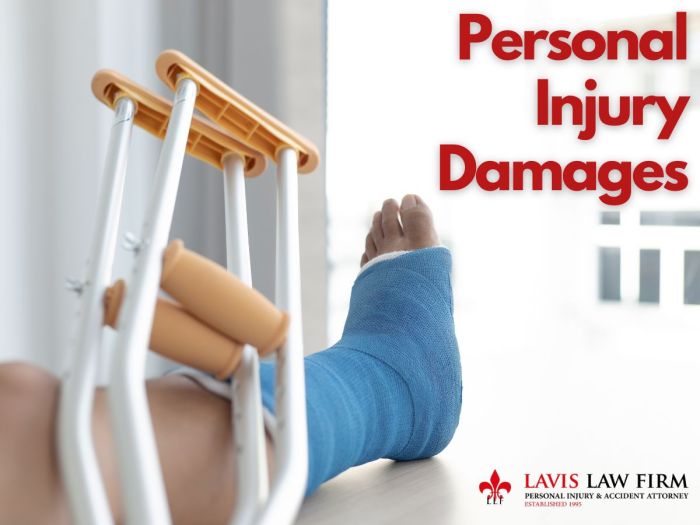
Real-life examples of personal injury cases in Louisiana can help illustrate the complexities of these legal matters. Understanding these cases can provide valuable insights into the legal principles, common arguments, and potential outcomes in personal injury lawsuits.
A Slip and Fall Accident at a Grocery Store
This case study explores a common scenario in Louisiana personal injury law: a slip and fall accident at a grocery store.
- Facts of the Case: A shopper, Ms. Jones, was walking through the produce aisle at a local grocery store when she slipped on a banana peel and fell, sustaining a broken leg and other injuries. The store’s employees had been notified about the banana peel earlier, but they had not yet cleaned it up.
- Legal Arguments: Ms. Jones’s attorney argued that the grocery store was negligent in failing to maintain a safe environment for its customers. The store’s attorney countered that Ms. Jones should have been more careful and that the banana peel was not a foreseeable hazard.
- Outcome: The court ruled in favor of Ms. Jones, finding that the grocery store had a duty to ensure the safety of its customers and that it had failed to do so. The store was found liable for Ms. Jones’s injuries and was ordered to pay damages, including medical expenses, lost wages, and pain and suffering.
This case highlights the importance of premises liability in Louisiana. Property owners have a legal duty to maintain their premises in a safe condition for visitors. Failure to do so can result in liability for injuries sustained by visitors.
A Car Accident Caused by a Drunk Driver
This case study examines a car accident caused by a drunk driver.
- Facts of the Case: Mr. Smith was driving home from work when he was rear-ended by another car driven by Ms. Brown. Ms. Brown had been drinking alcohol before getting behind the wheel and was found to be legally intoxicated.Mr. Smith sustained serious injuries in the accident, including a concussion and a broken back.
- Legal Arguments: Mr. Smith’s attorney argued that Ms. Brown’s negligence in driving while intoxicated directly caused the accident and his injuries. Ms. Brown’s attorney attempted to argue that Mr.Smith was partially at fault for the accident, but this argument was unsuccessful.
- Outcome: The court found Ms. Brown liable for the accident and Mr. Smith’s injuries. The court awarded Mr. Smith damages for his medical expenses, lost wages, pain and suffering, and other related expenses.
This case emphasizes the concept of negligence in Louisiana personal injury law. A person who acts negligently, such as driving while intoxicated, can be held liable for the injuries caused by their actions.
A Medical Malpractice Case
This case study explores a medical malpractice case in Louisiana.
- Facts of the Case: Mrs. Davis underwent a surgical procedure at a local hospital. During the surgery, the surgeon made a mistake that resulted in a serious complication, causing Mrs. Davis to suffer significant pain and disability.
- Legal Arguments: Mrs. Davis’s attorney argued that the surgeon’s actions fell below the accepted standard of care for a surgeon in Louisiana, resulting in medical malpractice. The surgeon’s attorney attempted to argue that the complication was an unavoidable medical risk and that the surgeon had not been negligent.
- Outcome: The court found the surgeon liable for medical malpractice and awarded Mrs. Davis damages for her medical expenses, pain and suffering, and loss of earning capacity.
This case illustrates the complexities of medical malpractice claims in Louisiana. Establishing medical negligence requires proving that the medical professional’s actions fell below the accepted standard of care and that this negligence directly caused the patient’s injuries.
The Future of Personal Injury Law in Louisiana: Louisiana Personal Injury
The landscape of personal injury law in Louisiana is constantly evolving, shaped by emerging trends, technological advancements, and societal shifts. Understanding these developments is crucial for both legal professionals and individuals seeking compensation for injuries.
Emerging Trends and Challenges
The legal landscape of personal injury cases in Louisiana is marked by several emerging trends and challenges. These include:
- Increased focus on data privacy: The growing reliance on technology in personal injury cases raises concerns about data privacy and security. Courts are increasingly grappling with the admissibility of data obtained from smartphones, wearable devices, and other sources. This trend presents challenges for both plaintiffs and defendants in gathering and presenting evidence.For example, in a car accident case, the plaintiff’s data from their smartphone might reveal they were using their phone at the time of the accident, potentially impacting their claim.
- Rise of artificial intelligence (AI): AI is rapidly transforming the legal profession, including personal injury law. AI-powered tools can assist lawyers in tasks such as legal research, document review, and case analysis. While AI offers potential benefits in terms of efficiency and accuracy, it also raises ethical and legal questions about its use in litigation.For instance, AI-powered chatbots might be used to gather information from potential clients, but there are concerns about data privacy and the potential for bias in the algorithms.
- Increased scrutiny of medical expenses: As healthcare costs continue to rise, insurance companies are increasingly scrutinizing medical expenses claimed in personal injury cases. This trend presents challenges for plaintiffs in obtaining fair compensation for their medical bills. In some cases, insurance companies might challenge the necessity or reasonableness of certain medical treatments, leading to disputes over the amount of compensation.
Impact of Technological Advancements, Louisiana personal injury
Technological advancements are having a profound impact on personal injury cases in Louisiana. These include:
- Use of drones in accident investigations: Drones are increasingly used in accident investigations to capture aerial footage and gather evidence. This technology can provide valuable insights into the scene of an accident, helping to reconstruct events and identify potential causes. In a car accident case, drones can provide a bird’s-eye view of the scene, capturing details that might be missed by traditional methods.
- Use of virtual reality (VR) in courtroom presentations: VR technology allows lawyers to create immersive simulations of accident scenes, helping jurors to better understand the events that occurred. This can be particularly effective in cases involving complex accident reconstructions or injuries. In a slip-and-fall case, VR technology can recreate the scene of the accident, allowing jurors to experience the slippery surface and better understand the plaintiff’s perspective.
- Use of telemedicine in medical evaluations: Telemedicine is becoming increasingly common in personal injury cases, allowing doctors to evaluate patients remotely. This technology can be particularly helpful for individuals with limited mobility or who live in remote areas. In a case involving a back injury, a doctor might use telemedicine to conduct a virtual examination, reducing the need for in-person visits.
Conclusion
Navigating the complexities of Louisiana Personal Injury law can be daunting, but understanding your rights and options is crucial. Whether you’ve been involved in a car accident, suffered a slip and fall, or experienced medical negligence, seeking legal guidance from a qualified attorney can help you navigate the process and protect your interests.
By understanding the principles of fault, the available types of compensation, and the potential pitfalls to avoid, you can empower yourself to pursue a fair and just outcome.
Answers to Common Questions
What is the statute of limitations for a personal injury claim in Louisiana?
The general statute of limitations for personal injury claims in Louisiana is one year from the date of the injury. However, there are exceptions to this rule, such as cases involving medical malpractice, which may have a longer statute of limitations.
What are some common mistakes to avoid in a personal injury case?
Some common mistakes to avoid include: failing to seek medical attention promptly, admitting fault, settling with an insurance company too quickly, and not keeping detailed records of your injuries and expenses.
How do I choose a qualified personal injury attorney?
When choosing a personal injury attorney, look for someone who has experience handling cases similar to yours, is well-respected in the legal community, and has a strong track record of success. You should also feel comfortable communicating with the attorney and trust their judgment.

